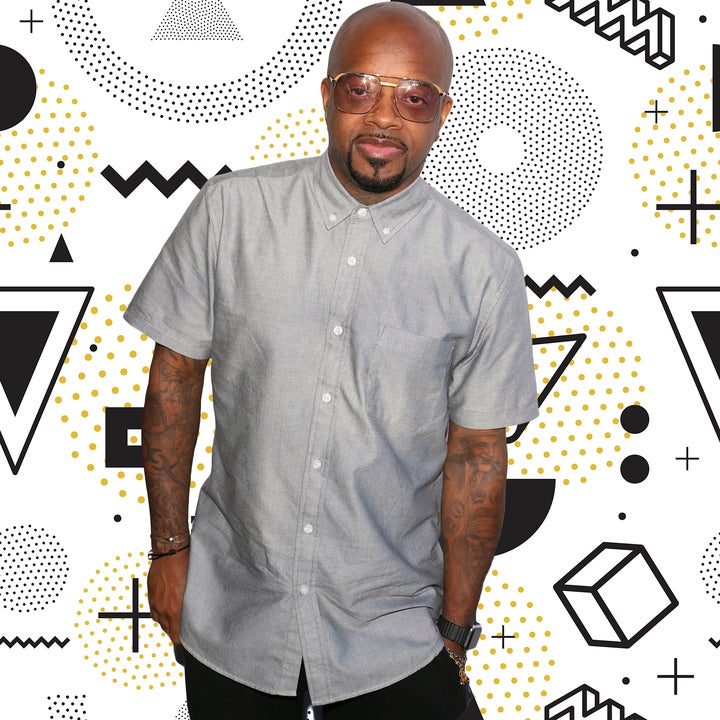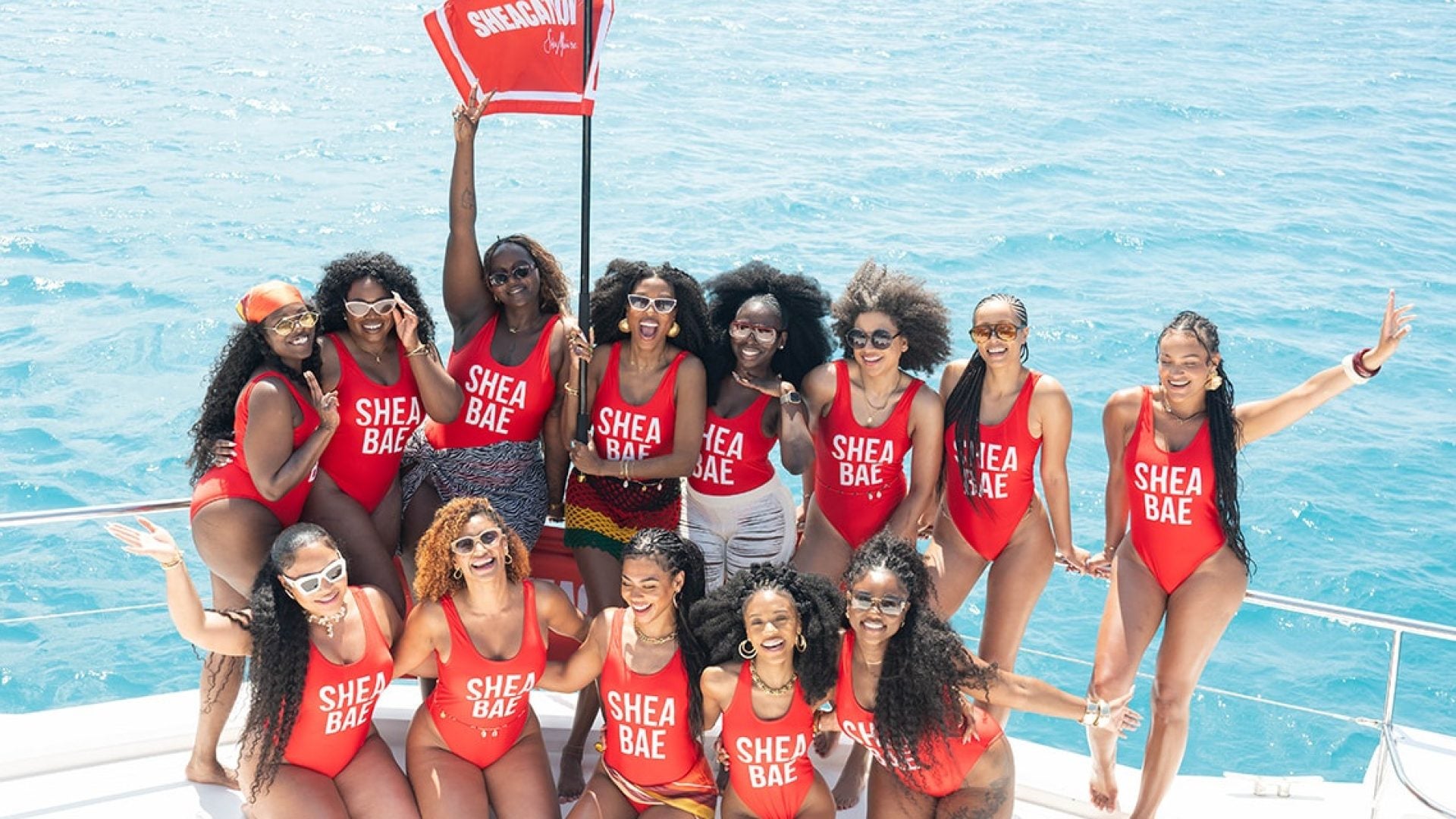
Jermaine Dupri‘s stellar hip-hop competition The Rap Game returns for its third season on Jan. 13. The Lifetime show is in a league of its own, much like Dupri, with young rappers competing for a contract with So So Def. ESSENCE chatted with Dupri about working with young artists, Mariah Carey‘s New Years Eve fiasco, and our current political climate.
Check out our exclusive below!
On Mariah Carey’s NYE Fiasco:
The heat around Mariah Carey’s New Year’s Eve fiasco has finally died down, but the singer faced a ton of criticism and a brief public feud with Dick Clark Productions. Dupri, however, feels that no one can really know what went down on stage and why the event went south. Admitting that he hadn’t seen the performance, the music producer said, “People that are performing today, they don’t care about lip syncing, they don’t care about even sounding good, they don’t care about how great their vocals sound. People are just performing and if they have a great show, they have a great show and if they don’t, they don’t…You’ve got to remember that Mariah Carey’s cut from a cloth of artists that don’t even exist anymore: Michael Jackson, Prince, Whitney Houston. These are artists that did things differently. She’s an artist that things have to be right.”
Subscribe to our daily newsletter for the latest in hair, beauty, style and celebrity news.
On Obama and Trump’s Impending Presidency:
Back in 2009, Dupri wrote for The Huffington Post that President Obama had somehow captured people’s attention, specifically, younger generations (even kids who couldn’t vote) and made them care about politics. But according to Dupri, it seems people just weren’t as enthusiastic during this election.
“In that article back then, my daughter was young and it was very impressive to me to see my child be a young kid, not old enough to vote, but very into the whole voting process,” he said. “I definitely don’t feel like these young kids are very focused on that anymore. I think that this presidential campaign and everything just went completely past them or they just didn’t care. Obama was definitely something else that triggered a different energy throughout the entire race of people, not just creed and color, age and everything.”
‘The Rap Game’ and Other Talent Competitions:
The Rap Game is heading into its third season and it’s in a league of its own. Dupri admitted that creating a show like this isn’t as easy as it seems, especially when it’s all about rap instead of various other talents, which shows like The X-Factor and American Idol focus on.
“I think it’s looked at as a different type of thing. It’s not as easy as people think. People judge singing immediately by a high note, if you hear the high note people can say, ‘Oh gosh, he can sing.’ You can’t really decide if a person can really rap based on that type of little thing. It’s a little more intricate than singing and dancing, so to know that somebody has a skill in rapping takes a little bit longer than just performing one song. Somebody might have a great song, but then the next day they can’t do something else. So, rapping is a little different.”
Finding Talented Kids:
For Dupri, finding contestants for the series is as easy as scouring the internet, where kids pursuing their dreams share clips of their skills and a fan base of their own.
“You can watch their activity on Instagram, you can watch their activity online and what they’re doing. I watch videos and listen to songs. I see if they really have that swag that they need, if they’re capable of writing their own lyrics. There’s a lot of things that I pay attention to.”
Preparing Kids for the Ever-Evolving Industry:
So, how does the music producer prepare contestants for the ever-evolving music industry? Well, he makes sure they don’t compare themselves to other artists, then prepares them for the attention, positive and negative, that they’ll receive from haters and fans.
“What I’ve always done here at So So Def is, we don’t prepare for what the industry is doing, we create what the industry is gonna do,” he said. “I get them prepared to understand that what they’re doing, nobody else is doing. What I’m telling them is, ‘Listen, what we’re doing is groundbreaking. It might be somebody else that’s coming out with a show soon, but the rap game is basically groundbreaking, so people are going to target you and people are going to pay attention to you. So you gotta understand, you will be targeted and people are going to pay a lot of attention to you, so you gotta be fresher than you ever wanted to be because the eyeballs are going to be on you.’ That’s the things that I tell them. And, as far as the industry goes, it’s like, the age group that’s on the show, the industry don’t really care about that age group. They look down upon kid rappers and kid artists like that. It’s not something the music industry or the rap game, period, holds high and celebrates.”
Working with Kids vs. Working with Adults:
There’s a simple, easy to spot difference in working with young artists and older, more established ones. For the music producer, it’s that kids don’t––or don’t have to––hold themselves back.
“Kids don’t really have limitations, they don’t put a lot of thought into what they do, and I don’t want people to misconstrue what I mean by that. What I mean by that is that they don’t have things that are holding them down from saying things. Take, for example, Usher. When I work with Usher now, he’s married, he thinks about his relationship and how the song is going to impact his relationship, as opposed to it just being a song. Whereas, when Usher was younger, he didn’t have that thing that he thought about. It was just, ‘Let’s write the best song possible’ and that’s what I like about young artists. They don’t really let anything limit them from having a great song. Nothing wrong with having to write based on your life. I understand that and we all have to do that, but when you work with young artists, this is the one thing that you get from working with them.”
Working with Parents of Young Artists:
Being managed by his dad, Atlanta manager and Columbia Records exec Michael Mauldin, taught Dupri how to work with the parents of young stars. And, because he’s been in the game so long, communicating with them comes quite easy.
“It’s not really a problem for me because that’s where I came from. My father used to manage me, so I understand it 100 percent. I understand the dynamic of it, I understand every side of it. It’s not really bad for me.”
On his Legacy:
Dupri is and always will be an essential part of hip-hop and R&B, but despite what most of us know to be true, the music producer isn’t so sure if he’ll ever reach the goal he’s striving for.
“Billboard released a greatest of all time top 100 list and throughout my entire career as a producer, I always wanted to try to outdo Teddy Riley, outdo Jimmy Jam and Terry Lewis, outdo Babyface, and I never felt like I could do it. I always just thought like, ‘Damn, I’m gonna die with this never happening,’ and it’s crazy because it’s something I always really wanted to do. And, I still feel like that, but I did see on this list Mariah Carey’s record “We Belong Together” is at number 11 and nothing by any of those guys is higher than me and nothing by any of my other peers is higher than me. So that alone, that one song basically is my greatest, I guess, my greatest moment. That song was big and I saw it become song of the decade, but to be number 11 is amazing.”






